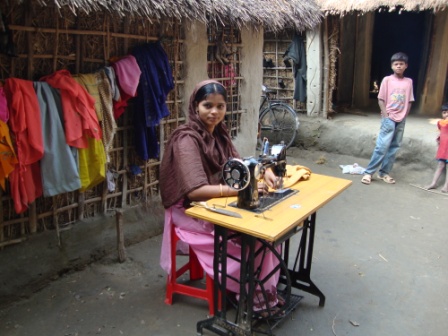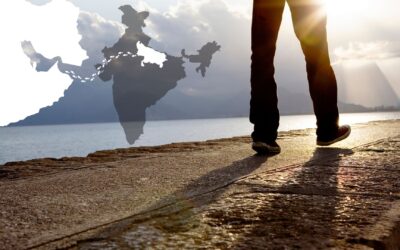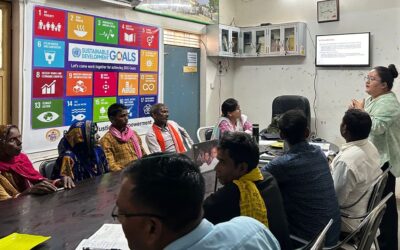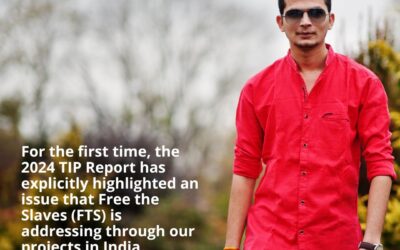
She is a survivor of slavery. But with the help of Free the Slaves north India partner DDWS, she was able to return home with the knowledge and support to become economically independent.
In north India, Free the Slaves partner Diocesan Development and Welfare Society (DDWS) rescues men, women and children from slavery. Some of the rescued children need shelter and rehabilitation, which is provided through the Bal Vikas Ashram, where survivors are empowered with knowledge of their rights and basic education. Crucially, the older children learn vocational skills like cycle repair, carpentry or tailoring, through which they can become economically self sufficient. The ability to generate their own income is of vital importance—it can keep them from once again falling prey to traffickers.
Once survivors are ready to leave the ashram and return home, DDWS helps them start their own businesses. They either use the State compensation funds or if they are not eligible for that, FTS supports DDWS in providing equipment. The purchase of a sewing machine, a small plot of land or some livestock can help survivors and their families achieve economic independence, and out of the shadow of modern-day slavery.
DDWS Director Fr. Deepak recently returned from the state of Bihar, where he checked up on the progress of some of the children who have returned home. With FTS support, DDWS has placed local staff in the main districts of northern India where children are trafficked from. The staff monitors and supports the progress of the returned children, and helps the community come together to address the root causes of slavery—and reject traffickers. “I carry some sweet memories of meeting some of the children recently returned [to their families] from the Ashram,” Fr. Deepak wrote, in an email. “Some of them have started shops, bought fields and pursued education. But all in one voice expressed that their life has undergone change. They have become more responsible, disciplined, have more concern for society and family.”
“Freedom and Beyond”, produced by Free the Slaves:
Help Free the Slaves continue to help rescue and rehabilitate survivors of modern-day slavery in north India. DONATE TODAY!



